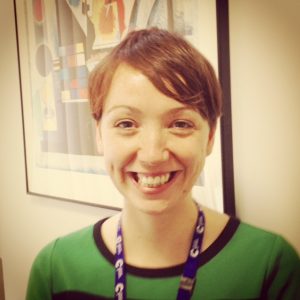How long have been working at the Barts Cancer Institute, QMUL and where did you train?
I’ve been working at Barts Cancer Institute for over 11 years. I’m Irish by birth and my first degree was in the National University of Ireland, Galway (NUIG) in the west of Ireland where I studied general science, specialising in microbiology. After my first degree I continued to study in NUIG and did my PhD there, which focused on the biology of the Atlantic Salmon, specifically investigating which genes were important in the eyes and livers of the salmon and how these might be important for fish farming.
However, once I’d finished my PhD I decided I wanted to continue research but in a more medical related field and applied for a post-graduate research fellowship in New York working at the prestigious Icahn School of Medicine at Mount Sinai Hospital where I was investigating the role the BRCA1 gene plays in breast cancer.
I spent three very good years at Mount Sinai but I wanted to be much closer to my family and work on a more translational aspect of cancer research so I decided to move to London. I accepted a postdoctoral research position at the Institute for Cancer Research, based in South Kensington, close to the Royal Marsden Hospital, and began researching how DNA gene repair pathways are lost in around 15% of bowel cancers. It was exciting original research and I was investigating whether certain drugs could kill these mutated cells, and I was delighted that this research advanced to the point of a clinical trial of patients with advanced bowel cancer.
In 2010, I came here to the BCI to start my own research group investigating how loss of DNA repair genes can influence the response of patients to different types of drugs. Based on our success looking at DNA repair genes, we decided to use a similar approach in Hannah Shailes’s PhD project and investigate drugs that could be used for patients with one of the main genetic mutations seen in bowel cancer.
Do you still have contact with Hannah Shailes? What does she do now?
I am pleased to say Hannah is doing well and is now pursuing a career in medical writing.
Were you ever tempted to be a medical clinician?
No, but it’s very stimulating and interesting working alongside practising clinicians during my research work. But for me, I really enjoy working in the laboratory and designing experiments with my staff in the lab.
What does your typical week look like?
Busy! Most days I will meet the PhD students and postdoctoral researchers I currently supervise to discuss their research. I’ll look at what they are working on right now and help guide their immediate next steps. I also spend a large proportion of my time writing research grants to fund the next projects and research papers to tell the international research community about our findings.
As the Director of Postgraduate Studies, I have managerial duties affecting all PhD students, not just the ones I supervise, and this involves providing both pastoral and academic support to the ~130 students in the BCI.
I am also an active lecturer, teaching final year undergraduates a module on cancer biology.
What’s it like supervising a PHD student? Are there flurries of activity or constant work? Does supervising teach you things you didn’t know?
It’s great to work with PhD students and see how they develop their interest and passion for science as they go through their PhD. Whilst working with PhD students we are all always finding out about things we didn’t know and those new discoveries are part of the joy of scientific research.
As for individual supervision, each student has different needs and there is no single, set approach. But a regular pattern seems to be that I am usually quite hands on when a PhD research project first gets underway, and I will have a meeting in the diary every week, even if it is just to check that the student is ok.
I also meet all my team as a group once a week, where we discuss a specific project going on in the lab and everyone can contribute their knowledge and advice. As time passes, students become more independent and require less of my guidance. But as they approach the writing up of their research for their thesis, I help guide them through the writing process and ultimately complete their thesis.
What all my PhD students have in common is their thirst for knowledge. One of the best things about my work is that we are always breaking new ground, learning new things, which is great to share and pass on to others.

